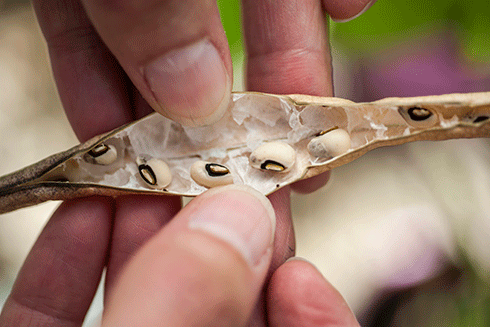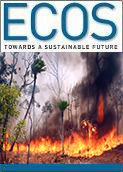
|
Published: 6 October 2014
Gates open to low-cost, high-yield food crops for Africa
CSIRO has received a $14.5 million grant from the Bill & Melinda Gates Foundation to improve the productivity and incomes of smallholder farmers across Sub-Saharan Africa by developing high-yield sorghum and cowpea crops that regenerate without the need for pollination.

|
|
Cowpeas originated in Africa but suffer from low yields. Credit: CSIRO
|
The goal of the five-year humanitarian project is to generate self-reproducing hybrid cowpea and sorghum crops that will help millions of farmers become more self-sufficient with higher yielding crops.
CSIRO will use the grant to partner with other leading research teams from Switzerland, USA, Germany and Mexico to achieve this goal.
‘Sorghum and cowpea originated in Africa and are important staple food crops, but suffer from low yields,’ CSIRO Project Leader Dr Anna Koltunow said.
‘Our aim is to develop high-yielding sorghum and cowpea crops from which seeds can be saved and grown by smallholder farmers without loss of yield or quality.
‘Hybrids in commercial farming systems can increase yield by 30 per cent or even more, because of a phenomenon known as heterosis or hybrid vigour.
‘However, hybrid seed needs to be recreated and purchased each year, and current technologies to produce hybrid seed are expensive.’
The creation of self-reproducing hybrid cowpea and sorghum crops would allow smallholder farmers to self-harvest high-quality seed to provide a more secure food supply and potentially increase income through the sale of surplus harvest and seed.
‘It's not going to be easy otherwise it would have been done already. The idea of changing the plants' reproductive processes to an asexual one is a complex undertaking,’ Dr Koltunow said.
The initial stage of the project will be devoted to developing the techniques to enable cowpea and sorghum plants to reproduce asexually and is laboratory-based. If this stage is successful, the project will broaden to bring in African-based research and development partners.
Source: CSIRO



